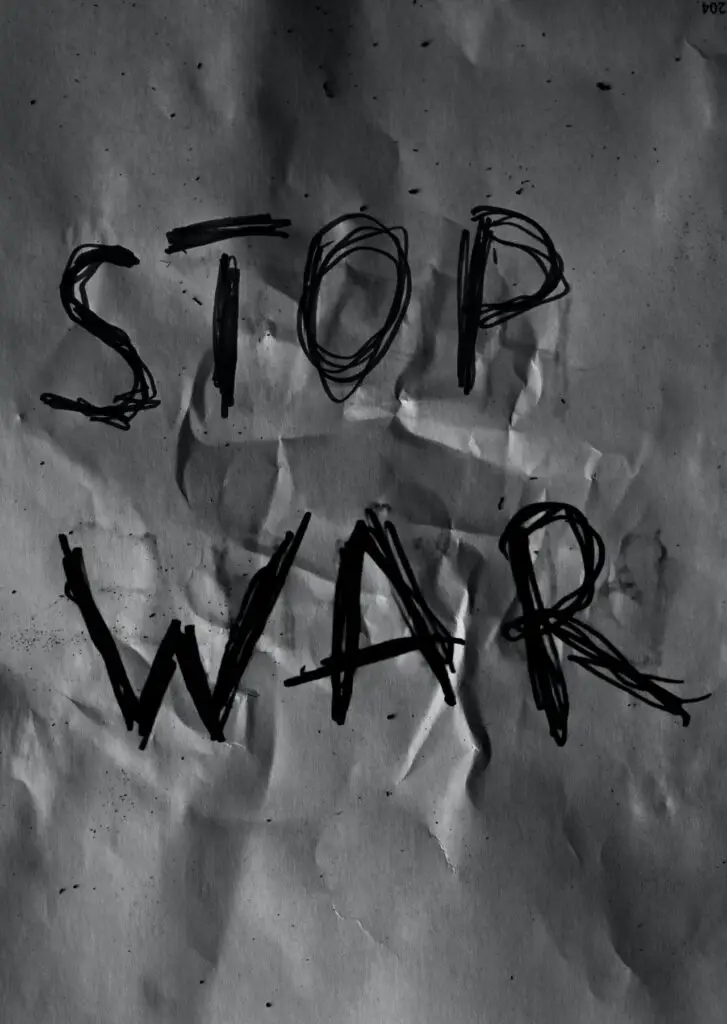We hope you enjoy our articles. Please note, we may collect a share of sales or other compensation from the links on this page. Thank you if you use our links, we really appreciate it!
March 1, 2022
The war in Ukraine benefits none of the actors in the conflict. While the immediate victim of the war is Ukraine, the implications are far reaching.
Ukrainian President Zelensky’s exasperation was evident in this statement, “I have asked 27 European leaders whether Ukraine will be in NATO …. Everyone is afraid, no one answers.” Ukraine became independent in 1991, but it never enjoyed true peace. Russia considered it as part of its orbit, while the US and its European allies wanted to pull Ukraine out from the Russian orbit and make it pro-West. The conflict flared up in 2014 when pro-Russian Ukrainian President Yanukovych was overthrown from office by the pro-West protesters. Russia considered it as a sign of encroachment in its ‘near abroad’. It annexed Crimea and supported separatist movements in Ukraine’s eastern regions. Ukraine remained eager to be part of EU and NATO, but nothing concrete happened. Corruption at home, lack of democratic governance and fear of Russia contributed to this uncertainty. The result was this – despite the promises, Ukraine could not be integrated into the West. Its rivalry with Russia cost it dearly, seeing culmination in the ongoing war. The material and human cost of the conflict for Ukraine proved deadly.
By the invasion Russia further alienated the people of Ukraine and strengthened the Ukrainian resolve to go farther away from the Russian orbit. From a Russian perspective, one could make sense of the argument that there are historical and cultural linkages between Russia and Ukraine, how they were part of the Soviet Union, and how Ukraine’s close ties with NATO created insecurity for Russia. Russia also argues that NATO, a creation of the Cold War, has no relevance in the post-Cold War era, and the militance alliance has no rationale to encroach into Russian sphere of influence. History and culture can be standards to judge relations with neighbors, but in the modern world, the relations between independent nations must be governed by the principle of sovereign equality. Ukraine is an independent nation, and Russia as a neighbor has no right to invade Ukraine. It is imprudent to think that by intimidation and invasion Ukraine will come to the Russian orbit, rather the opposite will happen. The invasion flouts the UN Charter. The economic sanctions from the US and European powers and other allies will impact the Russian economy and people.
The US, far away from the conflict geographically, will have to recalibrate its policies to stop the war and casualties in Ukraine. The US sent soldiers to the NATO countries in eastern Europe, but that will not help Ukraine as it is not part of the group. The US and its allies will likely lose some legitimacy before the Ukrainian leaders and people as it could not stop the Russian invasion despite sanctions and sending military equipment to the Ukrainians. Militarily Russia remains superior to Ukraine and without active ground support, Ukraine is unable to counter Russian invasion. Some Ukrainians also lament the Budapest agreement that took away all the nuclear weapons from Ukraine. Russia is one of the largest energy suppliers. Germany halting the certification of Nord Stream 2 pipeline, the US and allies sanctioning select Russian financial conglomerates, and top leaders including Putin will impact Russia. The American argument that the authoritarian regime of Russia is violator of international law by attacking Ukraine will have some salience for international politics, but the international structures have witnessed such violations in the past. It is, hence, no surprise that Russia will use the same logic and justify its unjustifiable actions.
The US and Russia were on the same side during the Second World War. They along with other allied powers were key to the establishment of the United Nations. Speaking at the closing session of the UN Conference in San Francisco in June 1945, the US President Harry Truman argued: “if we had had this Charter (the UN Charter) a few years ago—and above all, the will to use it—millions now dead would be alive. If we should falter in the future in our will to use it, millions now living will surely die…we have here resolved that power and strength shall be used not to wage war, but to keep the world at peace, and free from the fear of war.” The noble vision that guided the foundation of the UN faltered despite Truman’s caution, and states violated the Charter and attacked weaker states.
From a moral standpoint, international powers including India and China should have been critical of the Russian invasion, but they followed the path of realpolitik – the standard path in international politics. Both India and China are part of the trilateral group RIC (Russia-India-China) and multilateral forum BRICS (Brazil and South Africa besides RIC), and both have geopolitical interests allied with Russia. Both abstaining at the UN resolution on the Russian invasion starkly reminds that international politics is more about geopolitical interests and security concerns. In this calculation, humanitarian and moral concerns are subsumed by hard core realism.
In sum, no one gains from the ongoing war in Ukraine. Rather the invasion struck a lethal blow to the international order. While the Ukrainians suffer the most from the ongoing war, its repercussions will be felt worldwide. Unless the major powers work together to transform it following the UN Charter, the conflict may further conflagrate beyond Ukraine with possible nuclear dimensions. The prophecies of a Third World War appear vivid. Einstein is relevant here: “I know not with what weapons World War III will be fought, but World War IV will be fought with sticks and stones.” Are the leaders willing to push their states and people to the age of sticks and stones?
(A modified version of this article was published in Times of India blogs on February 28, 2022: https://timesofindia.indiatimes.com/blogs/periscope/war-in-ukraine-kills-people-benefits-none/)



